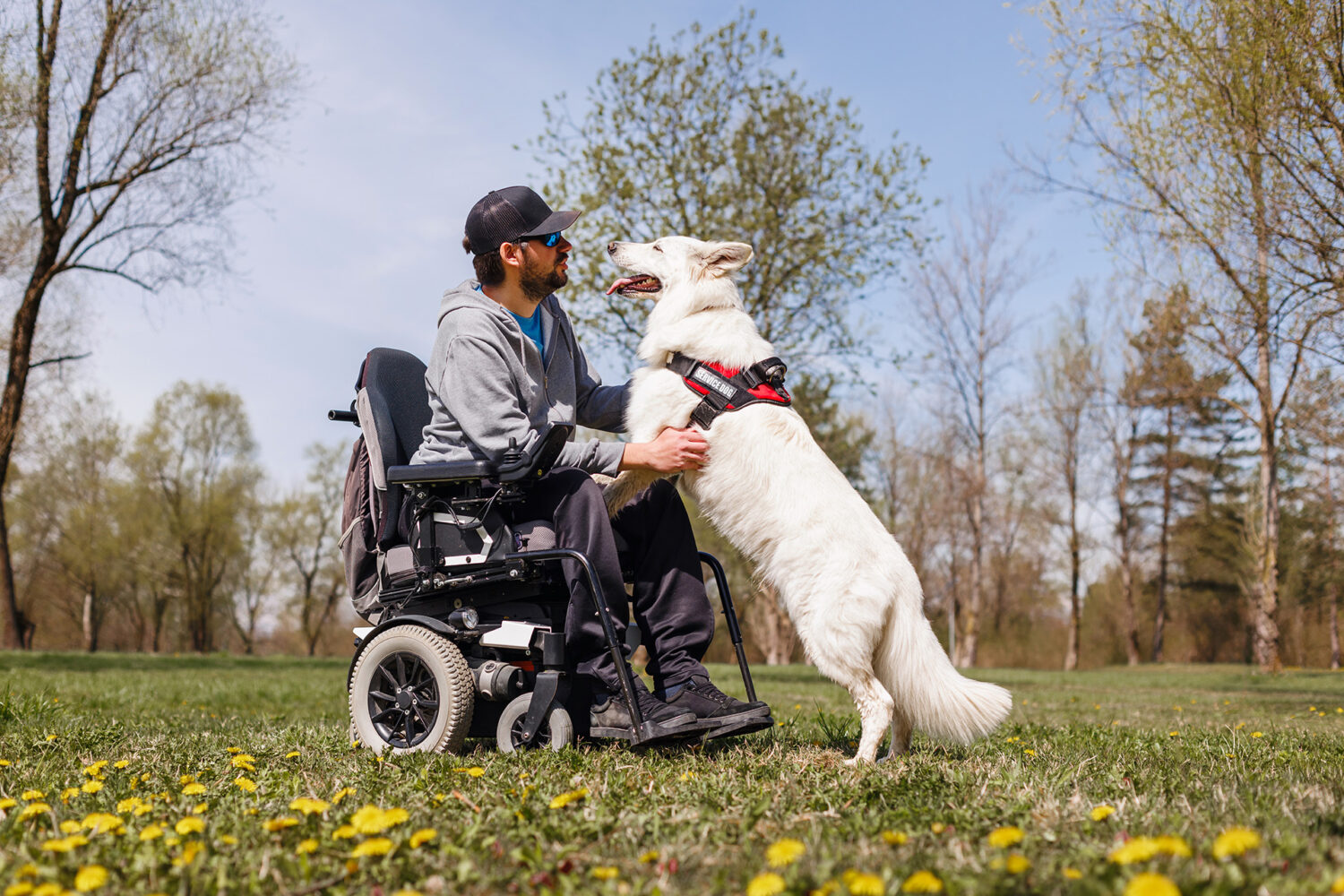
Service Dog Access in Montana: Progress and Challenges Ahead
Posted on: Sep 04, 2025
Service dogs provide life-changing assistance to people with disabilities across Montana. These specially trained animals help with mobility, medical alerts, and daily tasks that enable independence and safety. But even with laws that protect them, service dog teams still run into problems at work, in stores, and finding housing.
However, recent legislative victories like the passing of Senate Bill 300 and ongoing advocacy efforts work to address these challenges. Montana continues to strengthen protections for service animals while communities like Bozeman are seeing a movement to improve accessibility in their building codes.
In light of National Service Dog Month, we'll look at recent progress and ongoing challenges for service dog access in Montana.
New Montana Laws Protect Service Dogs and Their Handlers
Montana recently strengthened protections for service dogs with Senate Bill 300, which made it a misdemeanor to harass, harm, or take unauthorized control of someone else’s service animal. Offenders can face fines up to $1,000.
"This law exists because there have been episodes where someone harassed service animals, preventing them from performing their tasks," explains Ricky Burns II, an ADA and Independent Living Specialist with Ability Montana.
As a resource coordinator and advocate for people with service dogs, Ricky has seen how fear can prevent service animals from doing their jobs, creating a potentially dangerous situation for the owner.
This law makes perpetrators liable for the damage they cause to service dogs, recognizing them as expensive medical equipment for people with disabilities.
Service dogs typically cost between $5,000-$6,000, with training adding another $5,000-$10,000. When harassment damages a service dog's ability to work, it creates financial hardship for both individuals and the state, which often funds these animals through Medicaid.
Ongoing Challenges in Workplace Access for Service Dogs
According to Ricky, one of the biggest challenges service dog handlers still face is in the workplace. He’s helped mediate between handler and employer on several occasions, working to create understanding of service dog rights under the ADA.
Employers can be nervous about allowing service animals in the workplace because of perceived liability or lack of knowledge about the ADA. They may also confuse service animals with emotional support animals (ESAs), which are not covered under the ADA.
Overall, many people still struggle to see service dogs for what they are: “A very expensive piece of durable medical equipment, much like a wheelchair or a walker,” Ricky says.
Other common workplace issues include coworkers who have dog allergies or fear of dogs. Office layouts can lack space for wheelchairs with service dogs to move safely.
Unfortunately, access limitations don’t end in the workplace. According to a recent survey published by Assistance Dogs International, nearly half of all respondents with service dogs reported being refused access to a public space in the last year.
But knowledge is power, Ricky says, and by educating employers about service dogs, handlers can come to work without discrimination or fear of losing their jobs.
Addressing Building Accessibility Challenges in Bozeman and Beyond
Physical barriers in buildings create additional obstacles for service dog teams. From public universities to new housing projects, buildings often lack key features that make them accessible to people with service dogs, such as:
Door opener buttons that service dogs can reach with their noses
Wide hallways and doorways to accommodate wheelchair users with dogs
Accessible bathroom stalls with proper handles
Door designs that don't trap users between the door and activation button
But as the City of Bozeman rewrites its building codes, it presents a unique opportunity to embed accessibility from the start. Ricky is working with city commissioners and Deputy Mayor Joey Morrison to make the disability perspective heard.
The team is advocating for:
Minimum requirements for accessible units in new developments
Proper placement and height of door actuators
Wide pathways for service dog teams
Accessible bathroom facilities throughout buildings
"If you build a 700 unit condo building, how many of those units need to be accessible?" Ricky asks. The goal is ensuring Bozeman remains welcoming as its population ages and attracts more residents with disabilities.
"All of these things cost money. There’s no denying that," Ricky acknowledges. "But for accessibility, it’s worth it – even if it means giving up that new pickleball court."
In planning new developments, Ricky encourages everyone to think: "I'm disabled. Now what?"
"It's a club that anyone can join at any time,” he says.”It could be you tomorrow."
By building accessibility into infrastructure, training, and community awareness from the start, Montana can create environments where service dog teams thrive without having to advocate for basic access rights.
How Ability Montana Can Support Current and Potential Service Dog Owners
If you have a service dog or are considering one, Ability Montana is here to connect you with resources that can help.
If you’re an owner who needs an advocate to help you in the workplace or other situations, reach out to us.
If you’re interested in getting a service dog for your disability, Ability’s Independent Living Specialists – like Ricky – can help you make a plan.
Ricky recommends starting the process 2-3 years in advance because of the lengthy timeline for the dog’s specialized training and your training as a handler.
Our staff can also help you find funding for your service dog through sources like Medicaid, local grants, and other nonprofit programs.
The help doesn't stop once someone gets their service dog - Ability provides ongoing advocacy support, helping people navigate workplace accommodations and public access issues when problems arise.